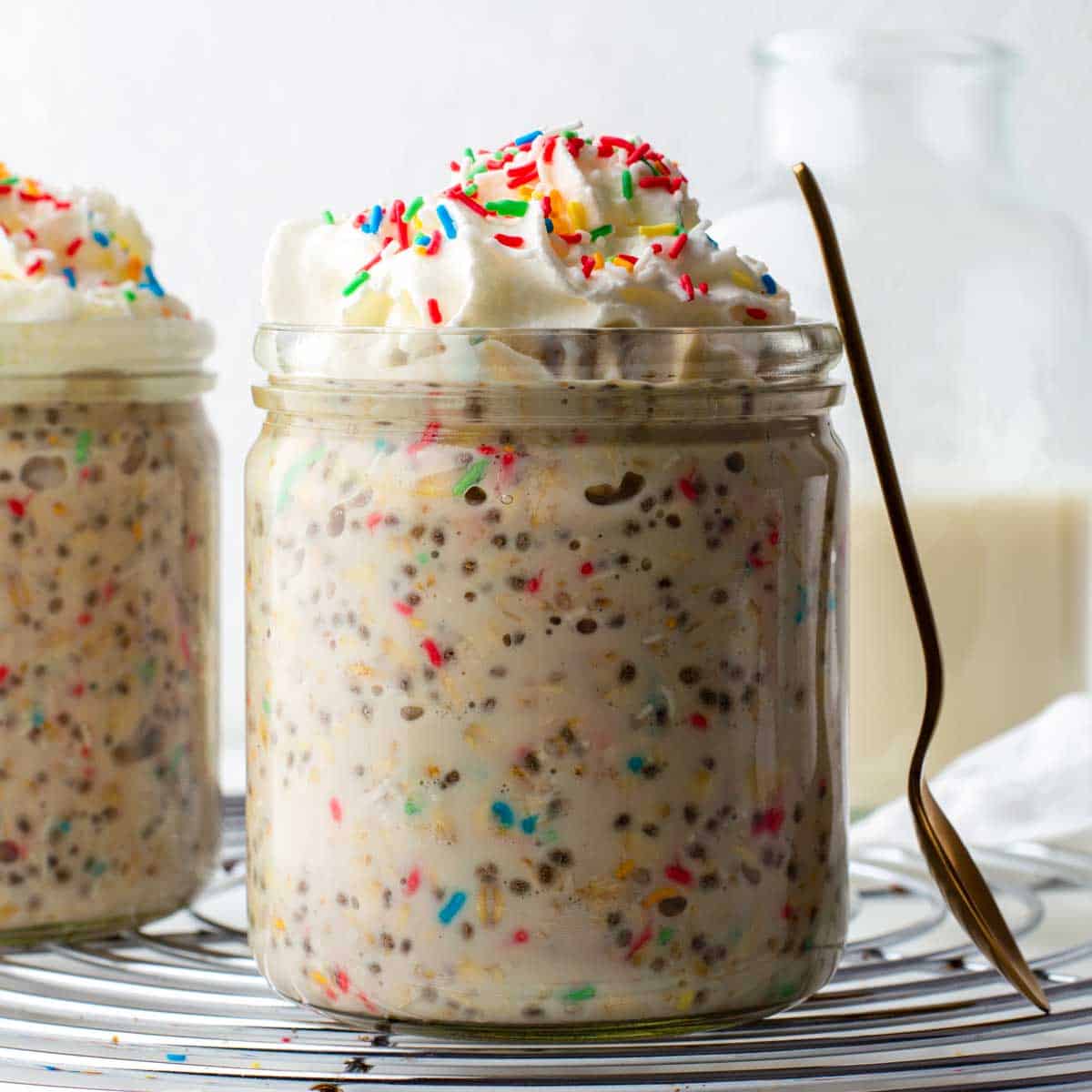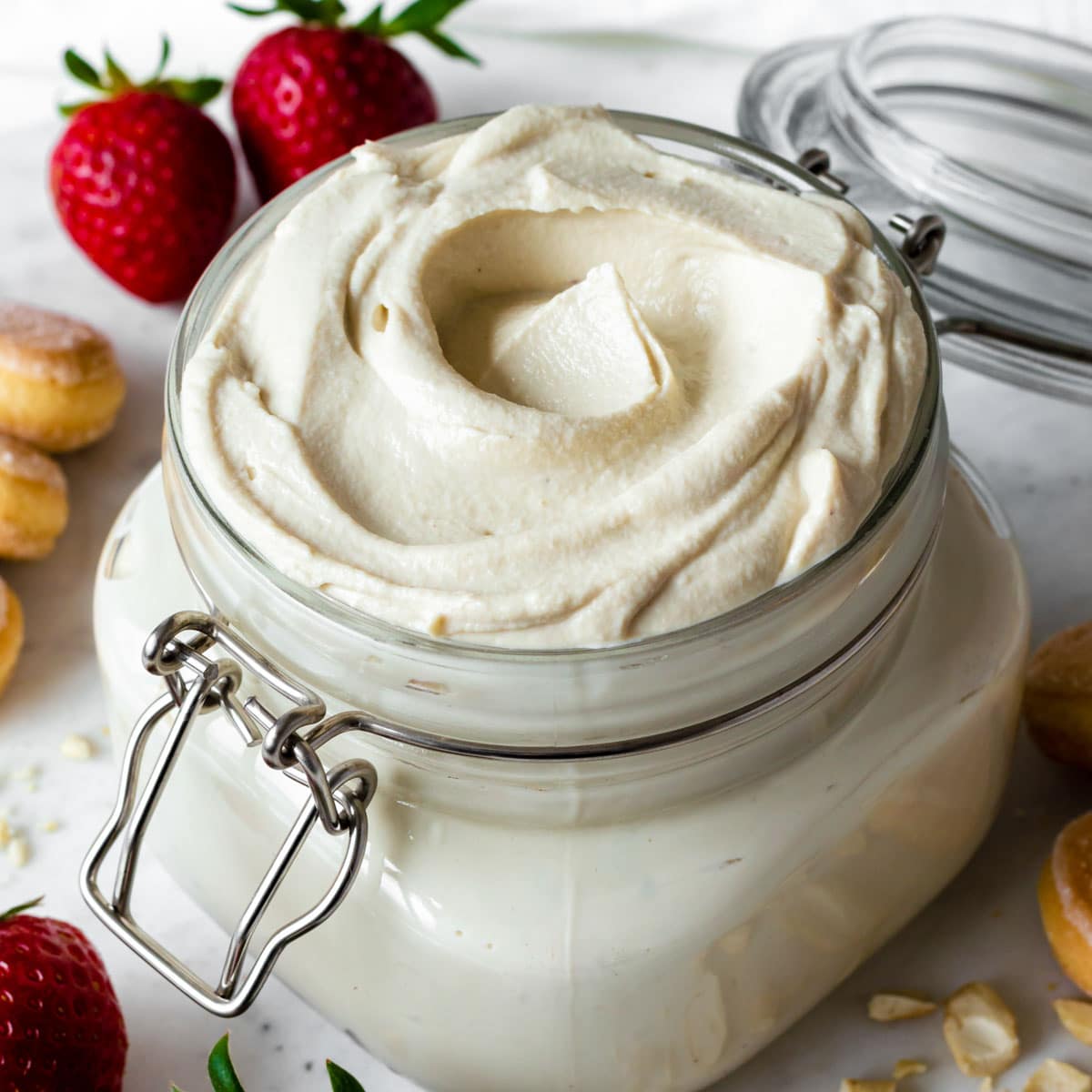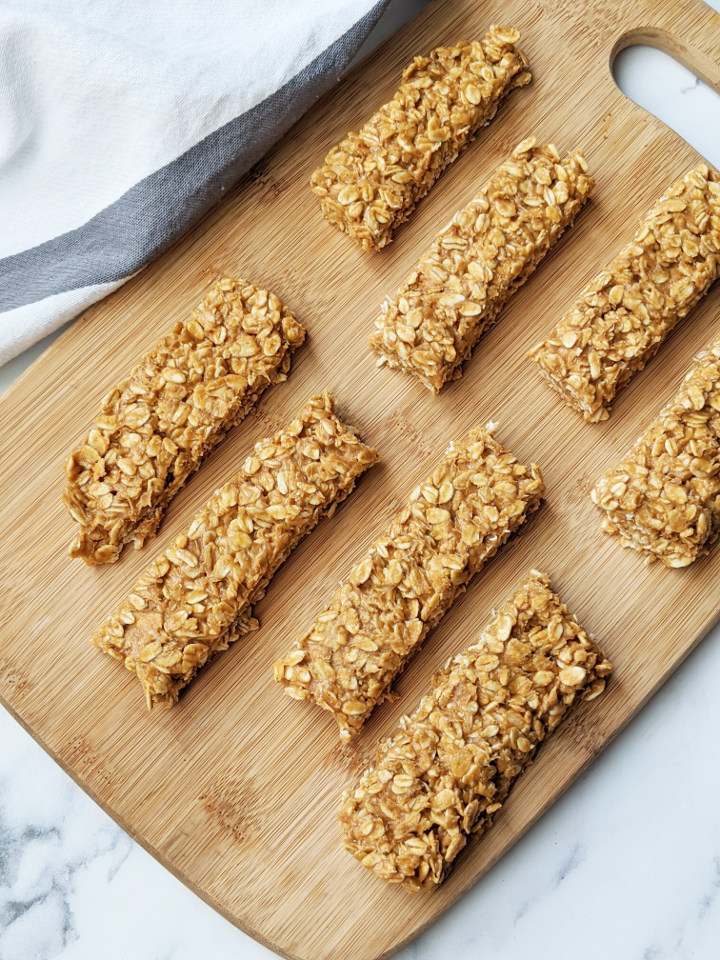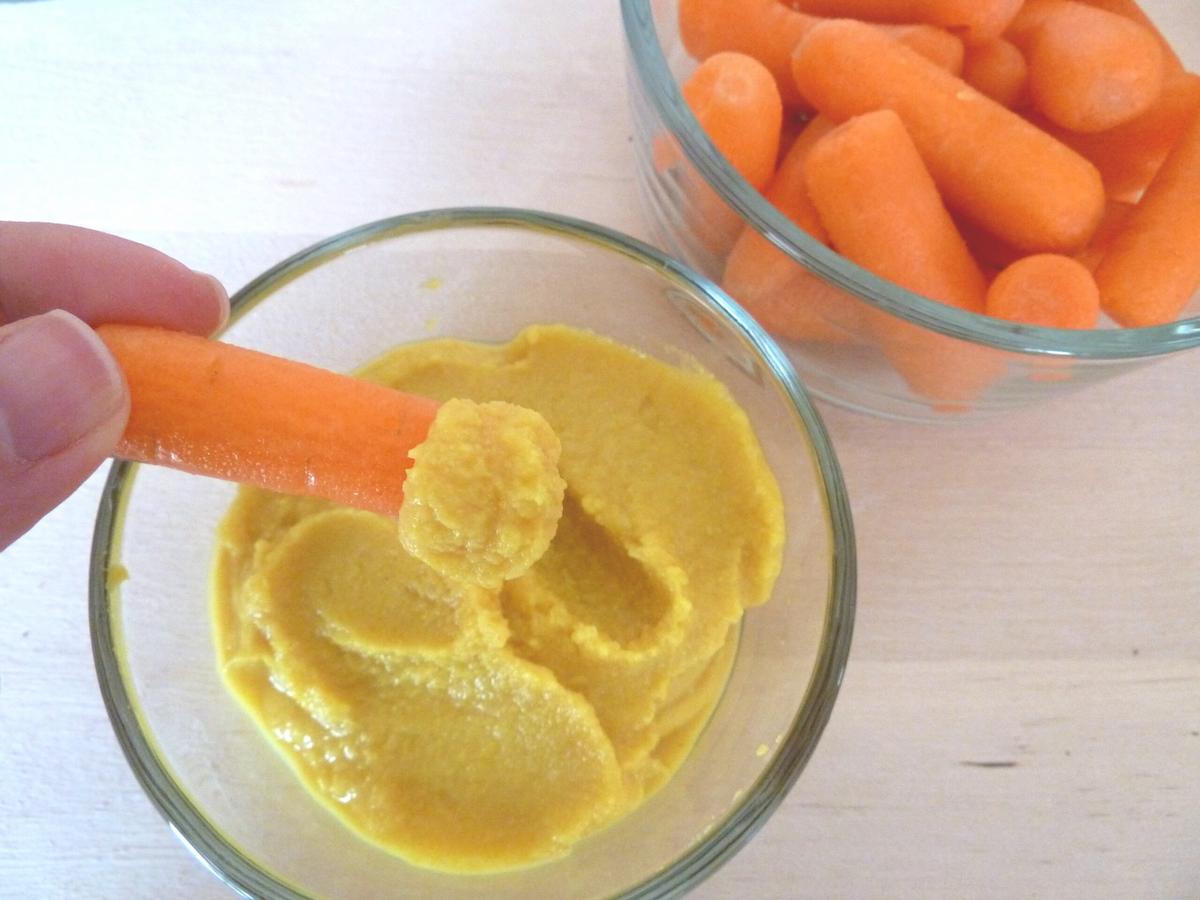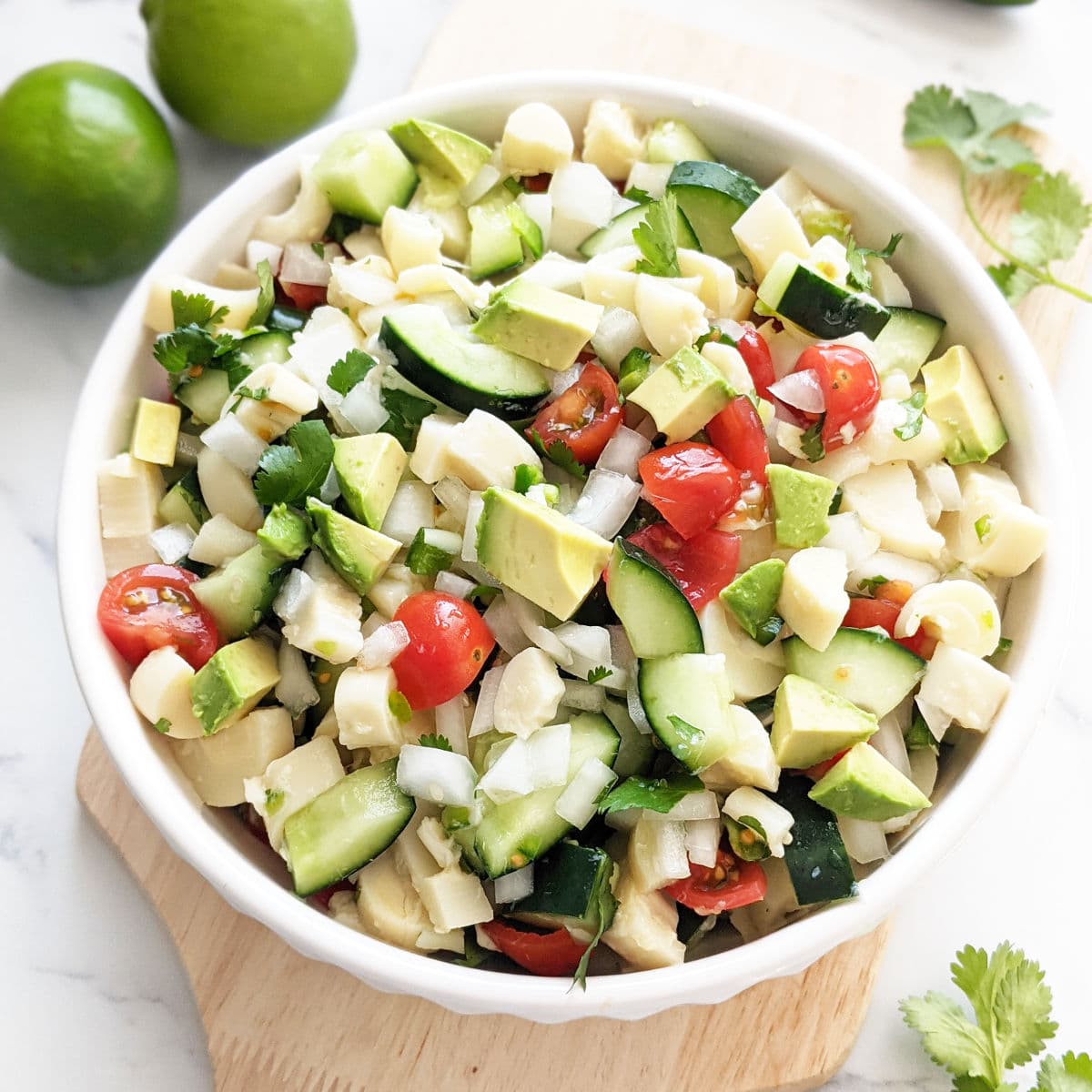Seeking a coconut water substitute that shares the same thirst-quenching benefit beyond plain old water? Here are 15 coconut water alternatives and how to use them!
This post may contain affiliate links. Read my policy page for more information.

What is coconut water?
Coconut water, the clear liquid found inside young green coconut, has garnered attention worldwide for its refreshing taste and numerous health benefits. This natural beverage boasts a subtly sweet and nutty flavor, making it a favorite among many.
Beyond its taste, coconut water is renowned for its rich nutritional profile, serving as a hydrating powerhouse packed with essential electrolytes, vitamins, and minerals. One of coconut water’s standout features is its electrolyte content, including potassium, sodium, and magnesium, which are crucial for maintaining proper hydration levels and supporting various bodily functions.
Coconut water also contains antioxidants, amino acids, and cytokinins, contributing to its potential health-promoting properties.
Athletes and fitness enthusiasts often turn to coconut water as a natural source of replenishment during and after workouts, thanks to its electrolyte composition and hydrating qualities. Popular uses of coconut water extend beyond mere hydration. It serves as a versatile ingredient, lending its unique flavor to smoothies, cocktails, marinades, and desserts.
Coconut water substitutes
Whether you’re making a recipe that calls for coconut water or you need a hydrating alternative after working out due to availability constraints, flavor preferences, and dietary needs—you’re in luck! There are several coconut water alternatives that will meet your needs and satisfy your taste buds.
Here are the best substitutes!
Liquid From Canned Coconut Cream

If you’re seeking the best substitutes for coconut water, then I recommend starting your search with a simple can of coconut cream. While fresh coconut water is made from young coconuts, coconut cream is the extracted liquid from the grated flesh of matured coconuts. While it does have higher fat content and a stronger coconut flavor, there is a trick to getting coconut water to separate from the coconut cream in the can.
Place the can in the refrigerator overnight to allow the cream to harden. The next day the coconut cream should have risen to the top of the can and separated from the coconut water (the clear liquid). Use the liquid as you would coconut water.
Coconut Extract

The second best option if you’re looking for a coconut flavor is coconut extract. It’s the concentrated liquid derived from the flesh of mature coconuts, capturing the intense flavor and aroma of coconut. It is commonly used as a flavoring agent in cooking, baking, and beverage recipes to impart the rich, tropical taste of coconut.
Coconut extract is a great substitute for coconut water when you want to add the taste of coconut water to dishes and beverages without the liquid consistency. Whether used in cakes, cookies, curries, or cocktails, coconut extract offers a convenient way to incorporate the essence of coconut into recipes.
Use 1/8 teaspoon of coconut extract in place of 1 cup of coconut water.
Birch Water

Birch water is a natural, nutrient-rich beverage tapped from birch trees during the early spring months. It’s clear and slightly sweet with a hint of earthy flavor. It has a refreshing taste similar to coconut water.
Like coconut water, birch water is hydrating and contains electrolytes, vitamins, minerals, and antioxidants, making it an attractive option for those seeking alternatives to coconut water. Just be aware the many commercial products for birch water contain added sugars.
It can be enjoyed on its own or used as a base for light and refreshing mocktails.
Use 1 cup of birch water for 1 cup of coconut water.
Aloe Vera Juice

Aloe vera juice is a natural beverage derived from the succulent leaves of the aloe vera plant. Known for its soothing properties, aloe vera juice offers a refreshing and slightly tangy taste, akin to coconut water.
Rich in vitamins, minerals, antioxidants, and enzymes, aloe vera juice serves as an excellent substitute for coconut water due to its hydrating qualities and potential health benefits. It provides electrolytes, particularly potassium, along with hydration, making it an ideal choice for replenishing fluids and maintaining hydration levels. Additionally, aloe vera juice offers digestive support and may aid in soothing inflammation, further enhancing its appeal as a substitute for coconut water.
It can be consumed on its own or mixed with citrus juices for a refreshing twist.
Use 1 cup of aloe vera juice for 1 cup of coconut water.
Maple Water

Maple water is a natural beverage harvested from the sap of maple trees, typically in the early spring season. With a subtly sweet taste and delicate flavor reminiscent of maple syrup, maple water offers a refreshing alternative to coconut water.
Like coconut water, maple water is hydrating and contains 46 essential minerals, vitamins, and antioxidants, making it a suitable substitute. It provides electrolytes such as potassium, along with hydration, making it an excellent choice for replenishing fluids and supporting overall well-being. It also has less sugar than coconut water for those seeking a healthier hydration option.
It’s perfect for a natural energy boost or post-workout hydration. Its subtle sweetness makes it a refreshing standalone drink or a unique addition to smoothies and cocktails.
Use 1 cup of maple water for 1 cup of coconut water.
Watermelon Water

Watermelon water is a refreshing beverage made from the juice of ripe watermelons. With its vibrant pink hue and naturally juicy flavor, watermelon water is a great refreshment reminiscent of summer days.
Like coconut water, it is rich in electrolytes, particularly potassium, and contains vitamins, minerals, and antioxidants essential for hydration and overall health.
It’s perfect for quenching thirst on hot days or post-workout. Its natural sweetness makes it enjoyable on its own, or it can be blended into fruity smoothies or used as a base for summer cocktails.
Use 1 cup of watermelon water for 1 cup of coconut water.
Cactus Water

Cactus water is a hydrating beverage derived from the prickly pear cactus fruit. It’s known for its unique flavor and potential health benefits. With a subtly sweet and refreshing taste, cactus water offers a flavorful alternative to coconut water.
Like coconut water, it is rich in electrolytes such as potassium and contains antioxidants and vitamins, making it a suitable substitute for hydration.
Cactus water is also low in calories and sugar, making it an appealing option for those seeking a lighter alternative to coconut water.
Cactus water is ideal for hydration during outdoor activities or as a post-workout drink. Its unique flavor makes it enjoyable on its own or as a base for refreshing smoothies, cocktails, or mocktails.
Use 1 cup cactus water for 1 cup coconut water.
Matcha

Matcha is a vibrant green powder made from finely ground, high-quality green tea leaves. It is renowned for its rich flavor, earthy aroma, and numerous health benefits.
If you’re looking for a replacement for the antioxidants, there’s a good reason you should consider matcha. You can make matcha easily with or without a whisk, on its own, or in matcha lattes and matcha bubble tea. You can even mix matcha with chai for a delicious combination!
Not only is it hydrating, but it comes with a natural boost of caffeine.
Use 1 teaspoon of matcha powder in 8 ounces of hot water for 1 cup of coconut water.
Natural Fruit Juices
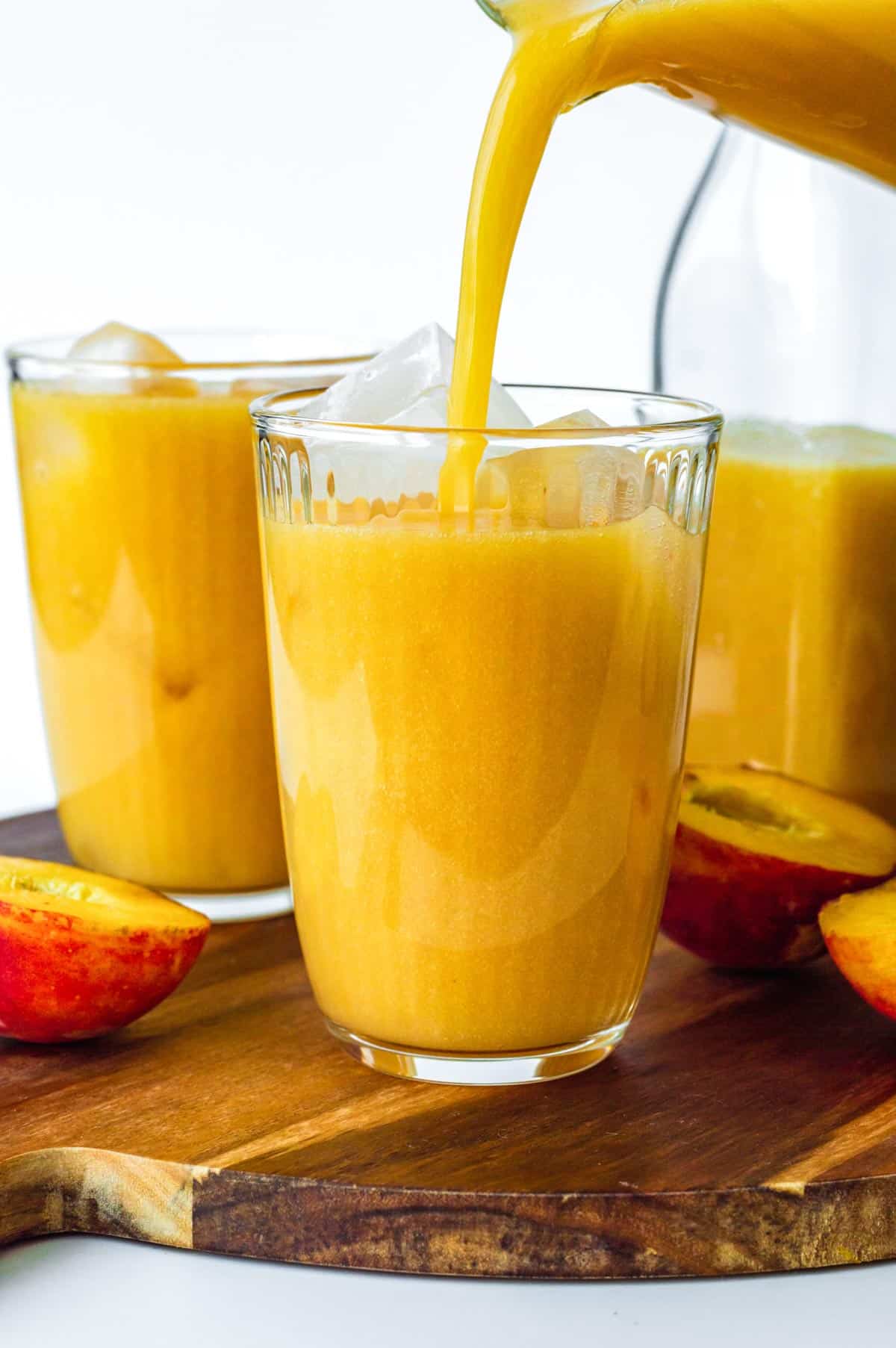
Various fruit juices offer refreshing alternatives to coconut water, each with its own unique flavor profile and nutritional benefits. Options like cucumber juice, peach juice, pineapple juice, kiwi juice, strawberry juice, and orange juice provide hydration along with vitamins, minerals, and antioxidants.
Use 1 cup natural fruit juice for 1 cup of coconut water.
Sports Drinks
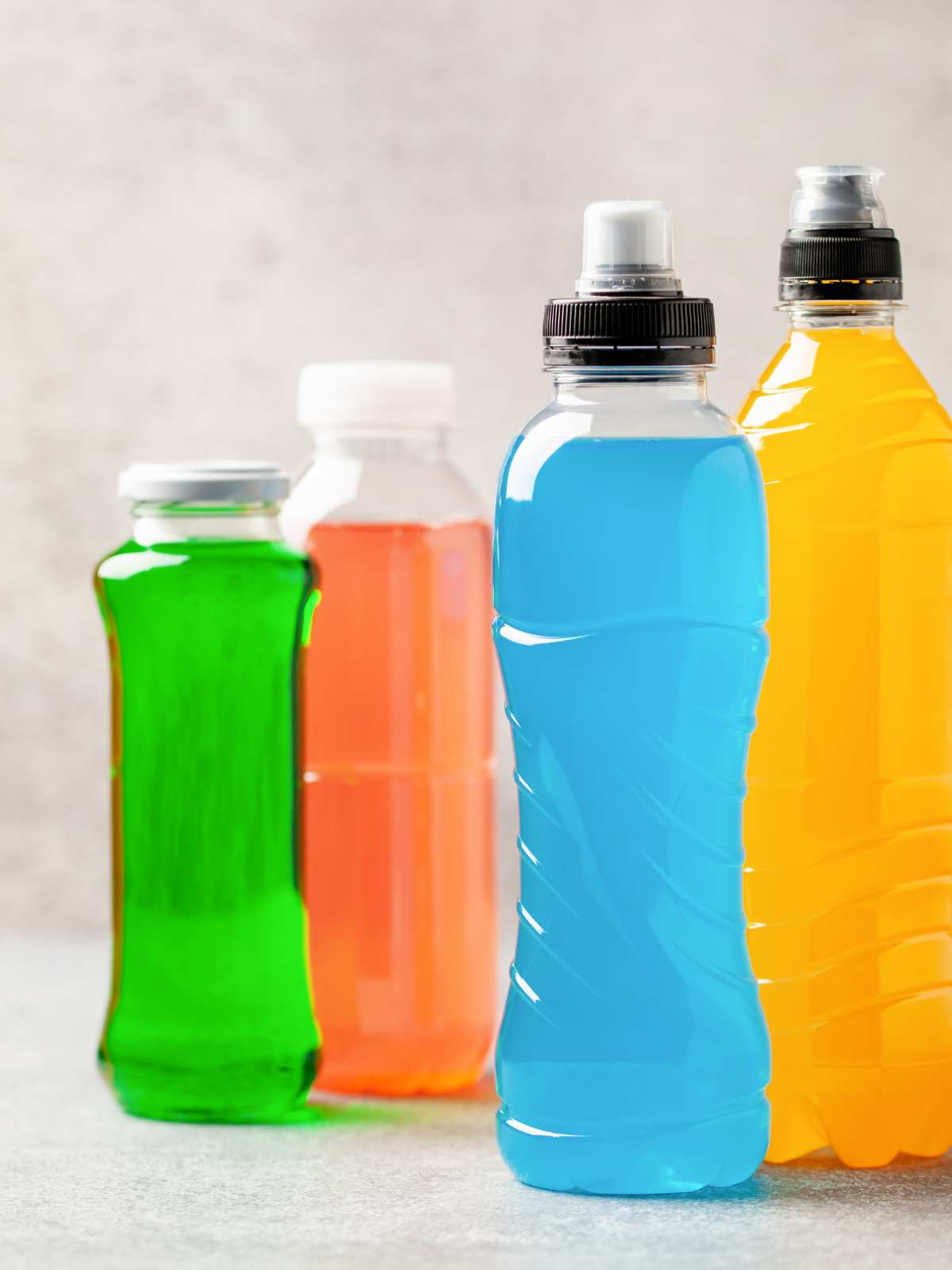
Commercially available sports drinks and electrolyte-enhanced waters provide a convenient substitute for coconut water, especially for those seeking hydration during or after physical activity. These beverages replenish electrolytes lost through sweat and help maintain proper hydration levels.
Use 1 cup of your preferred sports drink for 1 cup of coconut water.
Flavored Water

Infused water with fruits or herbs adds a burst of flavor to plain water, making it a refreshing substitute for coconut water. Popular combinations include cucumber and mint, lemon or lime and ginger, or berries and basil, providing hydration with a hint of natural sweetness.
Use 1 cup of your preferred infused water for 1 cup of coconut water.
Plant-Based Milk

For those seeking a creamy alternative to coconut water, plant-based milks like almond milk, soy milk, rice milk, or oat milk offer a nutritious option. These dairy-free milk alternatives are rich in vitamins, minerals, and protein, providing hydration along with additional health benefits.
Use 1 cup of your favorite non-dairy milk for 1 cup of coconut water.
Herbal Teas

Herbal teas, such as hibiscus tea, ginger tea, or chamomile tea, offer a soothing alternative to coconut water. These caffeine-free beverages provide hydration while offering various health-promoting properties, such as antioxidants and anti-inflammatory effects.
Use 1 cup of your preferred herbal tea for one cup of coconut water.
Plain Water with Added Electrolytes

Enhancing plain water with electrolytes, such as mineral water or electrolyte drops, provides a simple and cost-effective substitute for coconut water. This option allows you to customize your hydration routine by adjusting the electrolyte concentration to meet your needs.
Use 1 cup plain water with electrolytes for 1 cup of coconut water.
Vegetable Juices
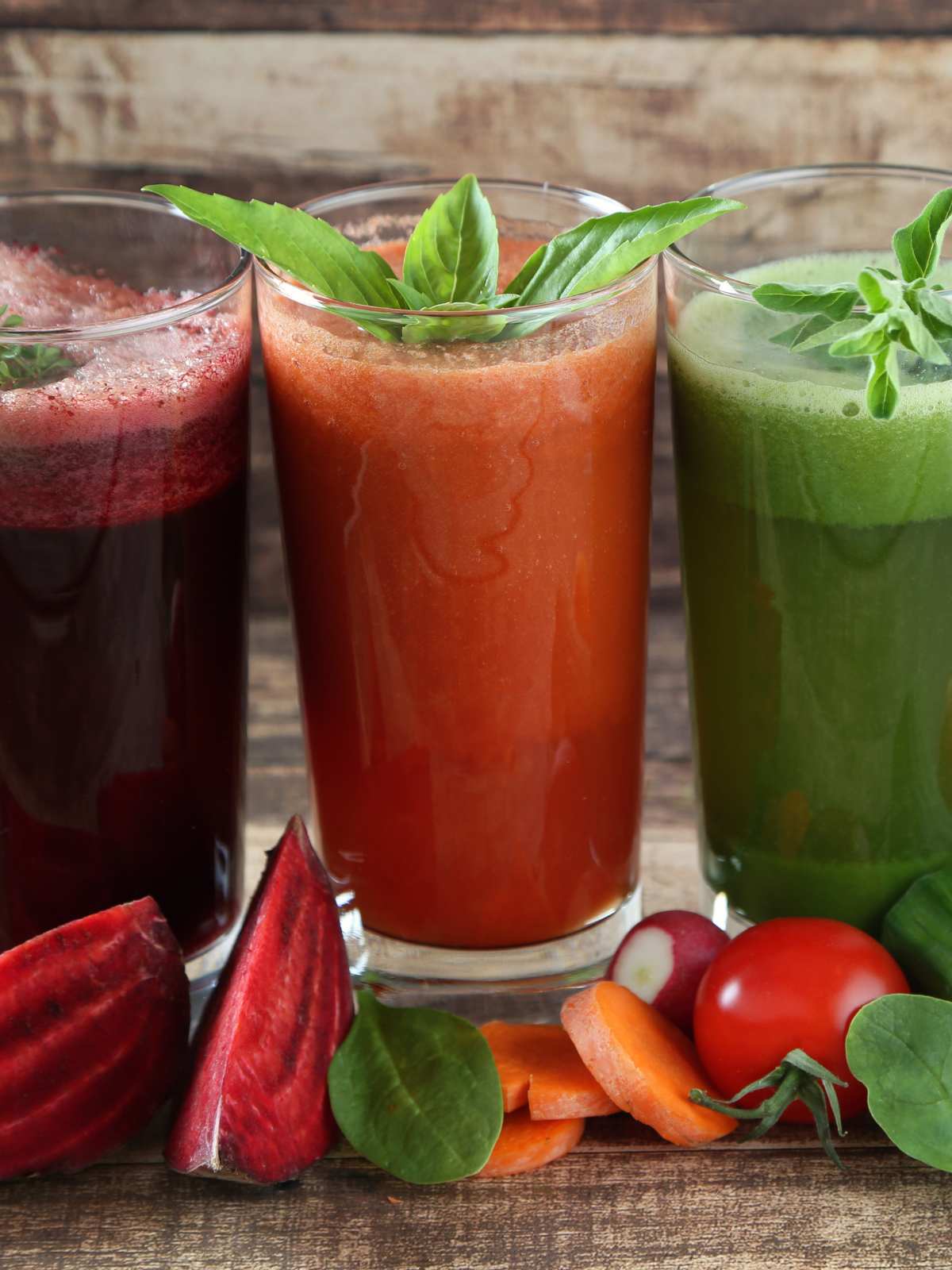
Juices made from vegetables like celery, cucumber, or beetroot offer a hydrating and nutrient-rich alternative to coconut water. These vegetable juices provide essential vitamins, minerals, and antioxidants, promoting hydration and overall well-being.
Use 1 cup of vegetable juices for 1 cup of coconut water.
Frequently asked questions
The best alternative for coconut water would be birch water, maple water, cactus water, or aloe vera juice. However, you can extract coconut water from canned coconut cream if needed by placing the can in the fridge overnight until the cream separates from the coconut water.
Yes, you can use milk of any kind in place of coconut water in both cooking and baking recipes. Just note that the flavor will change depending on which type of milk you use.
Yes, there are several ways to make your own coconut water. You could buy a young ripe coconut and cut it open to get coconut water. You could separate coconut water from a can of coconut cream. Or you could infuse shredded coconut into water. See the recipe card below for instructions.
Want to Save This Recipe?
Enter your email below and we’ll send it straight to your inbox! Plus, get weekly free recipes!
By submitting this form, you consent to receive emails from Health My Lifestyle.
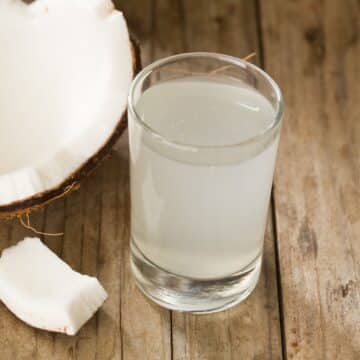
Best Coconut Water Substitute
Ingredients
- 1 cup unsweetened shredded coconut
- 2 cups hot water
Instructions
- Steep the unsweetened shredded coconut in hot water for 5-10 minutes.
- Strain the shredded coconut out and use the water as you would in any recipe that calls for coconut water.
- If you need it a little sweeter, add 1 teaspoon of sugar to the water and stir to dissolve.

